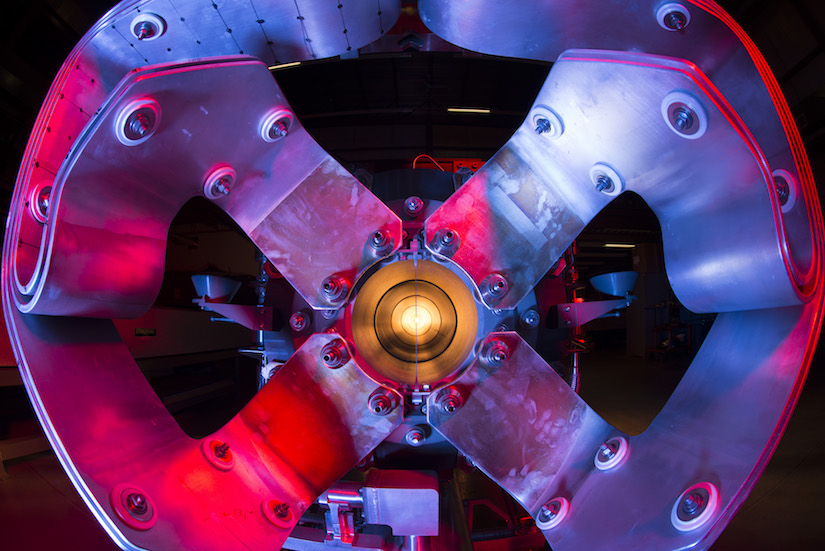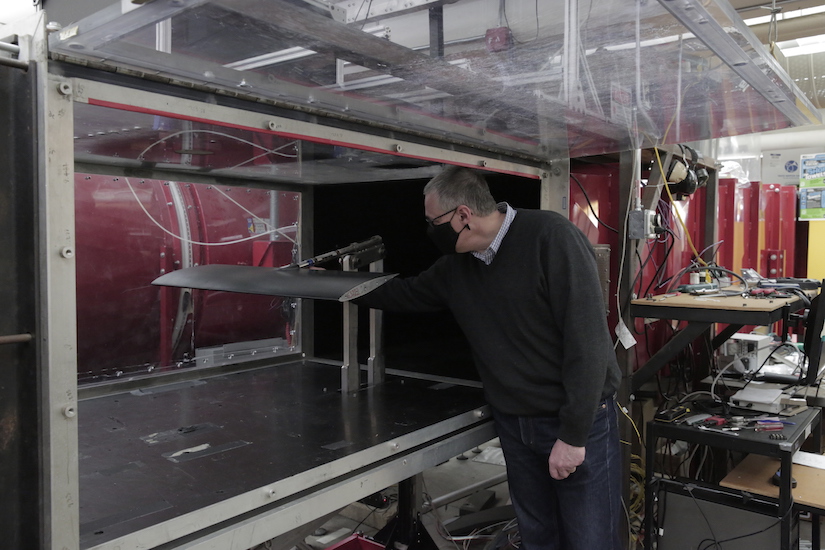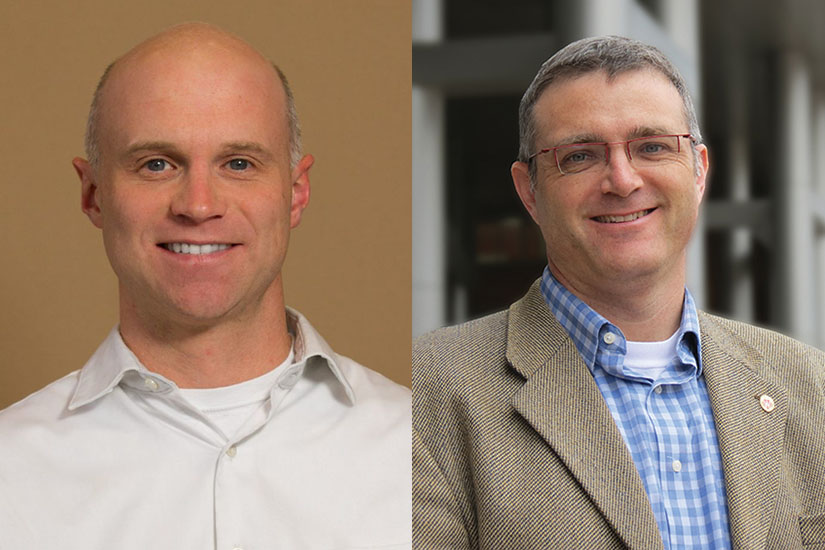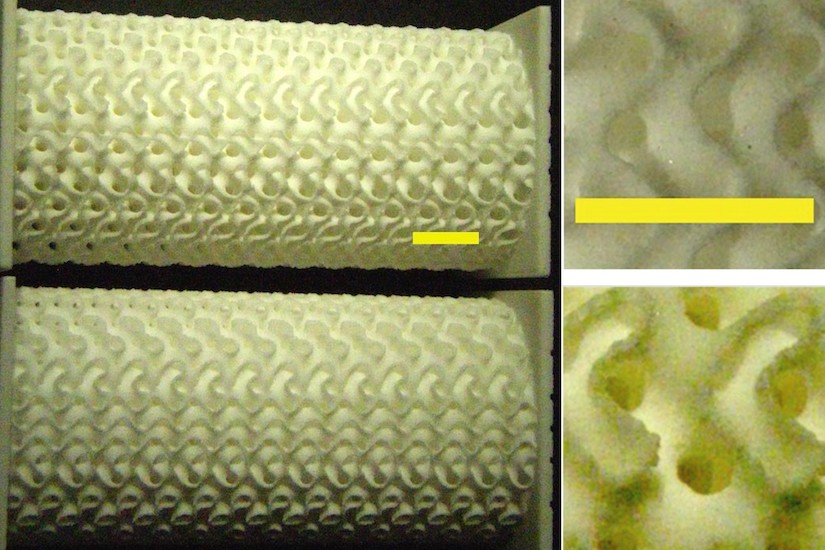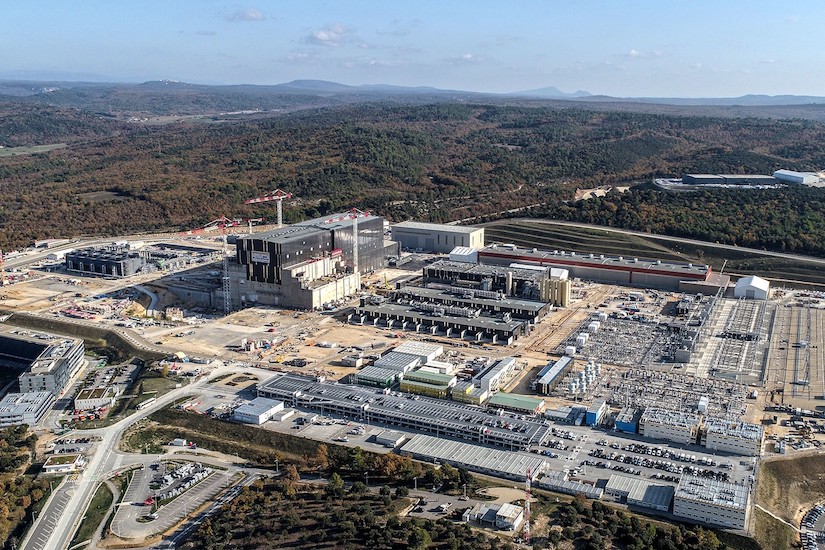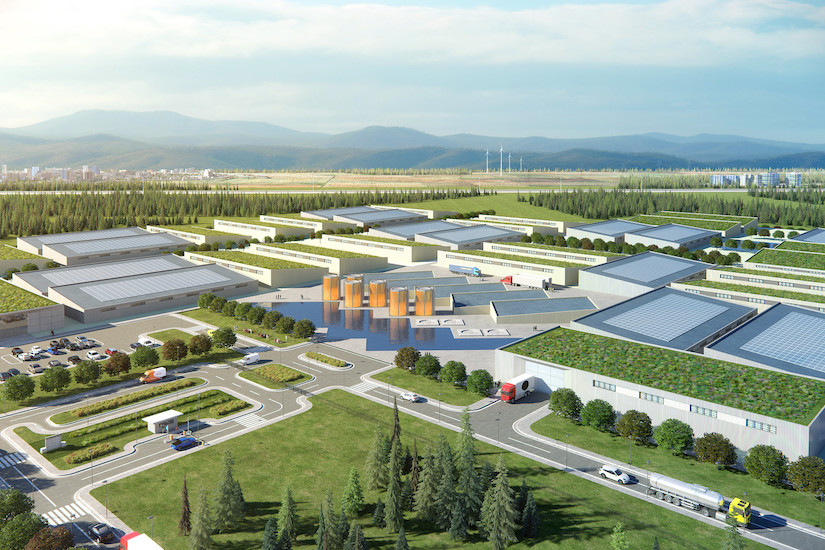New project brings UW engineers into international efforts to improve particle accelerators
Neutrinos are one of the most common subatomic particles in the universe. However, with a mass close to zero and no electric charge...
New aerospace option helps launch careers
The aerospace industry offers many career opportunities for engineers, who can apply their skills to challenges involving rockets, spacecraft, airplanes and more. Now, undergraduate students in the UW-Madison engineering mechanics degree program can focus their education on this field by selecting the new “aerospace engineering option.”
Murphy, Wilson leading industry collaborations in biopharma, fusion energy
College of Engineering faculty members are leading two ambitious industry partnerships and contributing to two others as part of the University of Wisconsin-Madison’s Promoting Industry Collaboration Initiative.
Surprise twist: Chiral material reveals new phenomenon
University of Wisconsin-Madison engineers have made a unique, asymmetric material that behaves in a new and unexpected way: When this “chiral” material is squeezed or stretched, it also twists.
Engineering advances are laying the groundwork for future exploration in space
On July 8, 2011, the space shuttle Atlantis blasted off from the Kennedy Space Center into a cloudy sky in the last launch of the three-decade-old program...
How seal whiskers can help engineers design innovative technology
Seals have an incredible ability to track their prey underwater thanks to the unique geometry of their whiskers. Unlike the smooth whiskers of cats and dogs, seal whiskers have wavy surfaces that help them detect disturbances in the water caused by their prey.
Advance takes ITER fusion experiment to a new level
A significant advance in numerical fusion energy sciences by University of Wisconsin-Madison researchers provides a new tool for solving pressing challenges for ITER, the international fusion experiment under construction in France.
Tapping innovative balance of power, microreactors could enhance energy resilience
Deploying micro-scale nuclear reactors—microreactors—for on-site power generation at select U.S. government facilities could enhance their ability to recover during a power grid outage, according to a new study by University of Wisconsin-Madison engineers.
